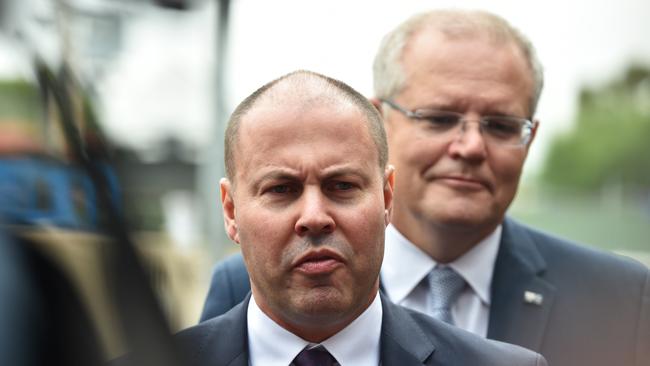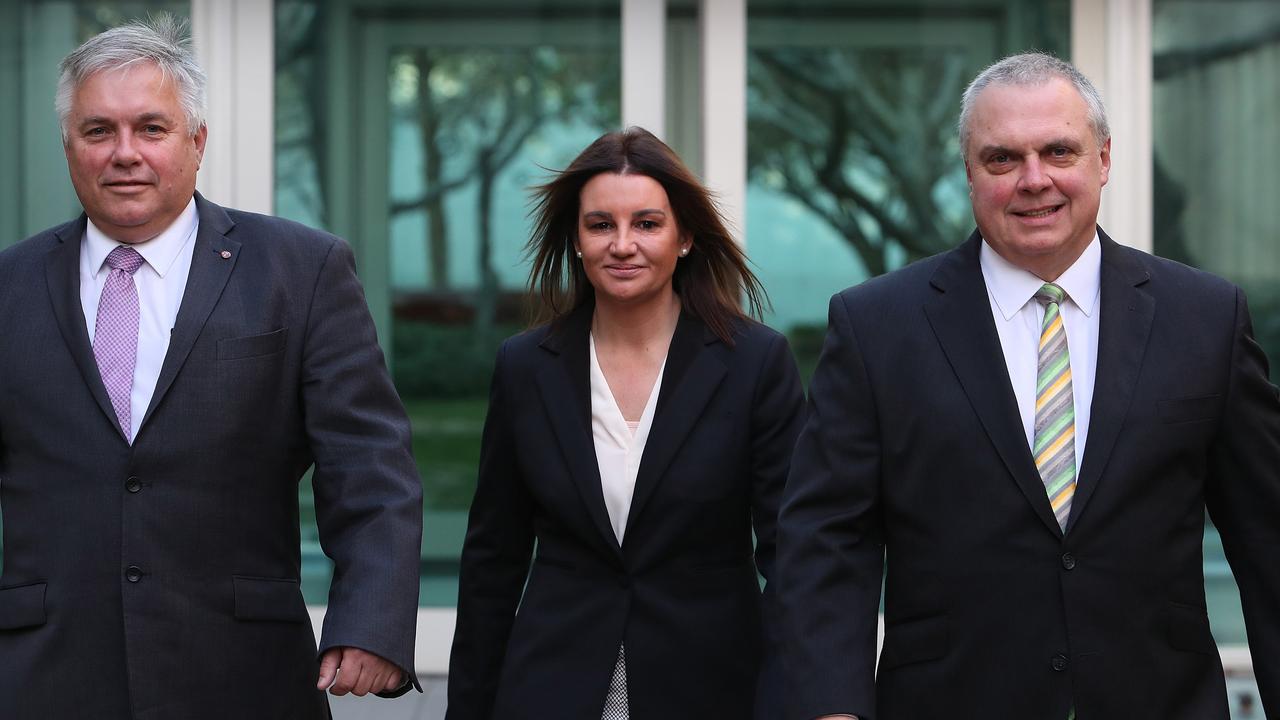Extra bite for watchdogs to clean up financial sector
Australia’s corporate watchdogs will be given an extra $550 million in a massive Budget boost to clean up the tarnished financial sector in the wake of the banking royal commission.

National
Don't miss out on the headlines from National. Followed categories will be added to My News.
Australia’s corporate watchdogs will be given an extra $550 million in a massive Budget boost to clean up the tarnished financial sector in the wake of the banking royal commission.
Next month’s Budget will include a funding lift for the Australian Securities and Investments Commission of $100 million a year for the next four years, while the Australian Prudential Regulation Authority will get $38.5 million over the same period.
The extra money will allow both agencies to take a tougher approach to law enforcement in the wake of the royal commission finding that they had been asleep at the wheel.
GREED, WEAK REGULATORS BEHIND BANKING SCANDALS: REPORT
MOST DISGRACEFUL ACTS OF GREED FROM ROYAL COMMISSION
BROKEN ASIC TOLD TO PROSECUTE, NOT BARGAIN
Treasurer Josh Frydenberg said the lessons of the royal commission needed to be learned.
“It’s time to restore a culture of compliance and accountability that puts people before profit,” he said.
“Through our actions, we will strengthen our regulators with record levels of funding and resources, provide them with more powers and larger penalties, and enable the Federal Court to prosecute cases of criminal misconduct in the financial sector,” Mr Frydenberg said.
In an interview with the Herald Sun ahead of the Budget to be delivered on April 2, the Treasurer said there were risks to the economy from slowing growth overseas.
“The near-term economic outlook is looking softer since (the release of the) Mid-Year Economic and Fiscal Outlook with the economy facing some emerging risks and you’ve got slowdown globally — we’ve seen global trade volumes down 3 per cent since August last year.
“The trade tensions are continuing, as is the uncertainty over Brexit.
“Both the IMF and the OECD have downgraded their 2019 growth numbers. Japan is growing at around only 1 per cent, Germany had a negative quarter last year, the euro area is under 2 per cent and China itself has lowered its growth target.”

Mr Frydenberg said falling house prices were “the most significant risk” on the domestic side to the Australian economy. How long the current slump — which saw house prices fall 5.1 per cent across the capital cities last year — would last, the Treasurer could not say.
“Well, the sense is there may be continuing softening in the market but where that lands is still unclear,” he said.
However, there were things happening that should improve the situation. “The RBA are watching this very closely … and the various measures that APRA introduced have now been lifted. Now the royal commission is over you’ll start to see more credit available.”
But he said Labor’s promises to abolish negative gearing for new investment in existing properties and hike capital gains tax were already hurting house prices.
“There’s no doubt that Labor’s policies are having an impact on investor confidence … under Labor, housing prices will be lower and rents will be higher.”
Originally published as Extra bite for watchdogs to clean up financial sector



